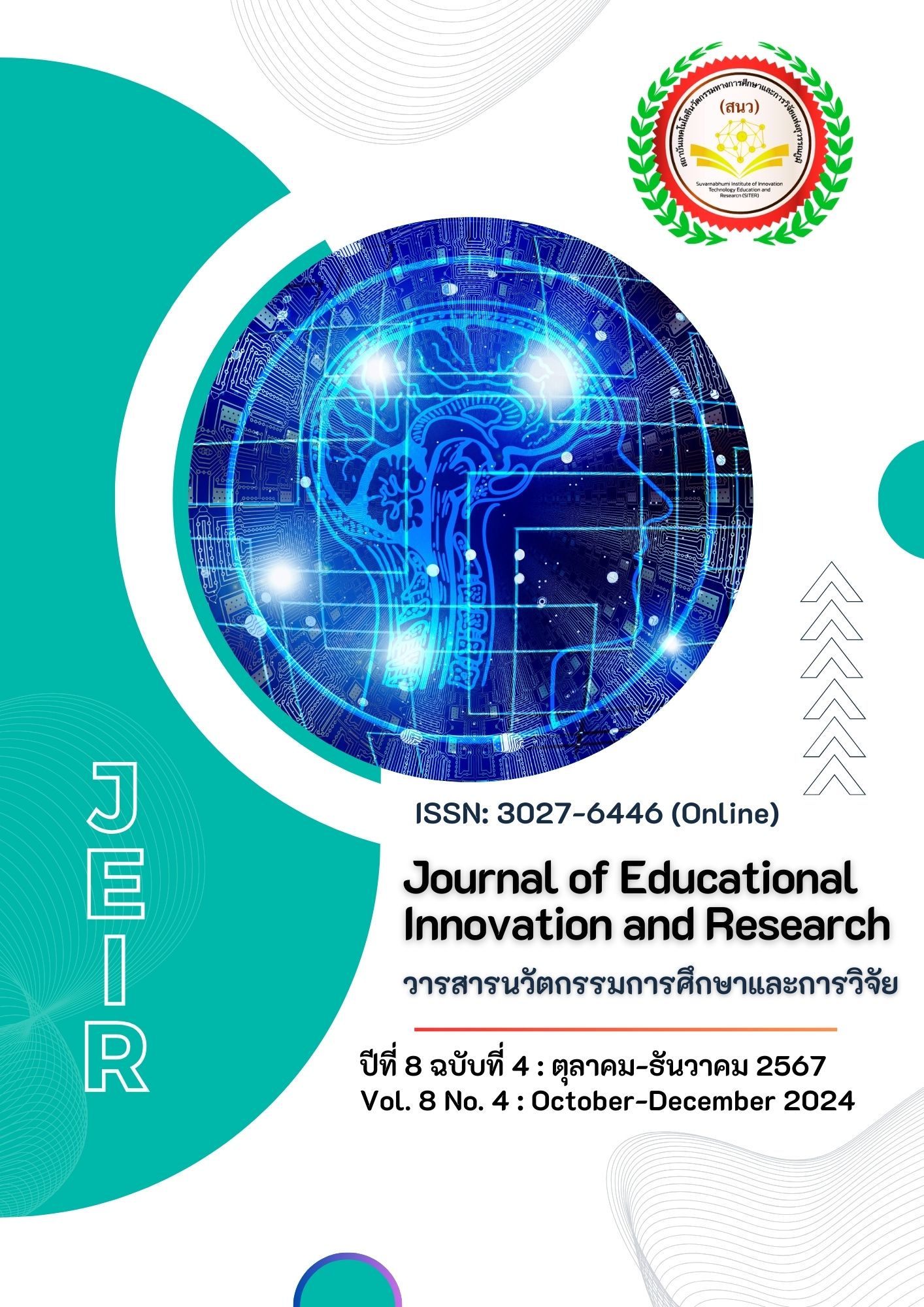การพัฒนาชุดการเรียนรู้กลุ่มสาระศิลปะ (ทัศนศิลป์) เรื่อง พื้นฐานงานศิลป์ โดยใช้กิจกรรมแบบสมองเป็นฐาน (BBL) สำหรับนักเรียนชั้นประถมศึกษาปีที่ 5โรงเรียนกลุ่มสถานศึกษา กลุ่ม 9 สำนักงานเขตพื้นที่การปฐมศึกษากาฬสินธุ์ เขต 3
Main Article Content
บทคัดย่อ
การวิจัยครั้งนี้มีวัตถุประสงค์เพื่อ 1) พัฒนาชุดการเรียนรู้ที่มีประสิทธิภาพตามเกณฑ์ 80/80 2) หาค่าดัชนีประสิทธิผลของชุดการเรียนรู้ และ3) เปรียบเทียบผลสัมฤทธิ์ทางการเรียน สำหรับนักเรียนชั้นประถมศึกษาปีที่ 5 ที่เรียนด้วยชุดการเรียนรู้ กลุ่มสาระศิลปะ (ทัศนศิลป์) เรื่อง พื้นฐานงานศิลป์โดยใช้กิจกรรมแบบสมองเป็นฐาน (BBL) สำหรับนักเรียนชั้นประถมศึกษา ปีที่ 5 โรงเรียนกลุ่มสถานศึกษากลุ่ม 9 สำนักงานเขตพื้นที่การศึกษาประถมศึกษากาฬสินธุ์ เขต 3 ระหว่างก่อนเรียนและหลังเรียน งานวิจัยครั้งนี้เป็นงานวิจัยเชิงทดลอง กลุ่มตัวอย่าง คือ นักเรียนชั้นประถมศึกษาปีที่ 5 โรงเรียนบ้านกอกวิทยาคม ภาคเรียนที่ 1 ปีการศึกษา 2564 มี จำนวน 30 คน โดยการสุ่มแบบกลุ่ม (Cluster random sampling) เครื่องมือที่ใช้ในการวิจัย คือ 1) แผนการจัดการเรียนรู้ สาระทัศนศิลป์ เรื่องพื้นฐานงานศิลป์ จำนวน 9 แผน 2) แบบทดสอบ วัดผลสัมฤทธิ์ทางการเรียนจำนวน 30 ข้อ สถิติที่ใช้ในการวิเคราะห์ข้อมูล ประกอบด้วย ค่าเฉลี่ย ส่วนเบี่ยงเบนมาตรฐานและการทดสอบค่าที (t-test Dependent Samples)
ผลการวิจัยพบว่า
1) ประสิทธิภาพของชุดการจัดการเรียนรู้ เท่ากับ 91.95/92.88 ซึ่งสูงกว่าเกณฑ์ 80/80 ที่ตั้งไว้
2) ค่าดัชนีประสิทธิผลของชุดการเรียนรู้ด้วยชุดการเรียนรู้กลุ่มสารศิลปะ (ทัศนศิลป์) เรื่องพื้นฐานงานศิลป์ โดยใช้กิจกรรมแบบสมอเป็นฐาน (BBL) โดยการวิเคราะห์หา ค่า EI เท่ากับ 0.7777 หมายถึง นักเรียนมีความรู้เพิ่มขึ้นร้อยละ 77.77
3) ผลสัมฤทธิ์ทางการเรียนของนักเรียนชั้นประถมศึกษาปีที่ 5 หลังเรียนสูงกว่าก่อนเรียนอย่างมีนัยสำคัญทางสถิติที่ระดับ .05
Article Details

อนุญาตภายใต้เงื่อนไข Creative Commons Attribution-NonCommercial-NoDerivatives 4.0 International License.
เอกสารอ้างอิง
Chansirirattana, D. (2010). The development of a brain-based science learning model [Master's Thesis, Mahasarakham University].
Junpetch, S. (2016). Implementation of brain-based learning management of Core schools. Under the jurisdiction of Chiang Mai Primary Educational Service Area Office 3 [Master's Thesis, Chiang Mai University].
Office of the Basic Education Commission. (2008). Library standards and indicators for school library quality development Under the Office of the Basic Education Commission. Basic Education Core Curriculum A.D. 2008. Agricultural Cooperative Federation of Thailand Limited.
Phanmanee, A. (2014). Training to think, Think creatively. Chulalongkorn University Press.
Pongkitwitoon, R. (2011). The development of e-learning based on the brain-Based learning concept. As a base. Course production and presentation of educational multimedia for undergraduate students [Master's Thesis, Khon Kaen University].
Punatung, R. (2017). Curriculum development for enhancing information literacy competencies based on the concept of blended learning and learning. Brain-based learning for high school students [Doctoral dissertation, Sakon Nakhon Rajabhat University].
Srisunthorn, P. (2010). The results of reading and writing in Thai on the subject of mixed alphabets. Primary 4 with activities based on the concept using the brain as a base [Master's Thesis, Mahasarakham University].
Wan-on, A. (2010). Comparison of learning achievement. analytical thinking and attitude towards learning science Mathayomsuksa 1, during the conceptual learning management, the brain is Base (BBL) and Concept Based Learning


